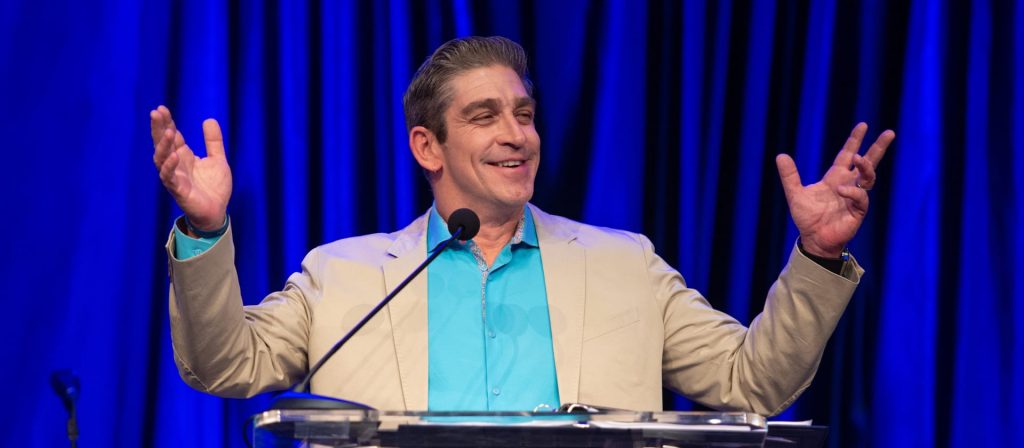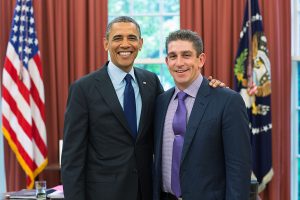
–By Angela Nicoletti for FIU News
Inaugural poet and FIU alumnus Richard Blanco has spent decades wrestling with the question of what it means to be American – from the experience of being an immigrant and the child of immigrants to the search for a sense of cultural identity, community and belonging.
On the Fourth of July, the Carnegie Corporation of New York will recognize Blanco as one of this year’s Great Immigrant honorees for his contributions to our society.
“I am humbled to be in the company of such accomplished leaders from diverse cultural and intellectual backgrounds,” said Blanco. “This is a testament to immigrants’ enduring contribution to our country’s vitality and prosperity. Now more than ever, this is an important reminder to embrace our essential spirit as a land of immigrants.”
The Carnegie Corporation honors Andrew Carnegie’s legacy by celebrating the wide-ranging contributions of immigrants who enrich our communities and culture, strengthen our economy and invigorate our democracy. Carnegie, a Scottish immigrant, believed that the infusion of talent that immigrants bring to our country keeps society vibrant.
Blanco’s newest collection of poetry, How to Love a Country, opens with “The Declaration of Interdependence” – a tapestry of modern American life tucked between lines of the Declaration of Independence. There is a mother with three children in a grocery store check-out line flipping through a tabloid; a father in a coal mining town; a Buddhist and a stockbroker both serving soup at a shelter; and an inmate in a cell. The poem takes the perspective of “we” – that each of us shares something with these people and their individual circumstances, because we share this country. Blanco ends with a simple, but powerful, statement:
“We’re the promise of one people, one breath declaring to one another: I see you. I need you. I am you.”
The theme of human connection, unity and “oneness” has always been present in Blanco’s work. He’s tapped into it, again and again. He’s addressed serious social issues through poems like “Until We Could,” – a celebration of love and same-sex marriage – and “Seventeen Funerals” for the victims of the Marjory Stoneman Douglas tragedy.
Blanco’s story is the story of the American dream. A child of exiles, he was an infant – only 45 days old – when was arrived in New York with his Cuban-born parents. The family eventually settled in Miami.
Raised in Westchester, Blanco would ride his bike around FIU’s Modesto A. Maidique Campus, when there were only three buildings. He would go on to receive two degrees from FIU.
The first was in engineering. Because Blanco was good in math and science, his parents encouraged him to pursue a career in engineering, believing it would provide him with a stable and rewarding career. He graduated in 1991 and went on to design bridges and an architectural plan for City Hall in South Miami.
The creative spirit called out to Blanco. He answered. He came back to FIU and studied under Creative Writing Professor Campbell McGrath and earned a Master of Fine Arts in 1997. He then published his first book of poetry, City of a Hundred Fires – a search for his cultural identity as a Cuban American.

In 2013, Blanco delivered his poem “One Today” at President Barack Obama’s second inauguration – becoming the youngest, the first immigrant, the first Latino and the first openly gay poet selected for the honor.
“There I was: holding a poem in my hands that FIU taught me how to write, reading it to 40 million people across the nation,” Blanco said.
Two years later, he made history again when he took to the steps of the U.S. embassy in Havana, Cuba, to deliver an original poem marking the reopening of the embassy.
Blanco’s journey recently came full circle. He returned to the place he calls home – Miami. In 2017, he took a position as a faculty member at the College of Arts, Sciences & Education.
He’s paved a new path for American poetry. Now, Blanco is teaching students – who often remind him a lot of his younger self – to write in new and meaningful ways that bring people together.
